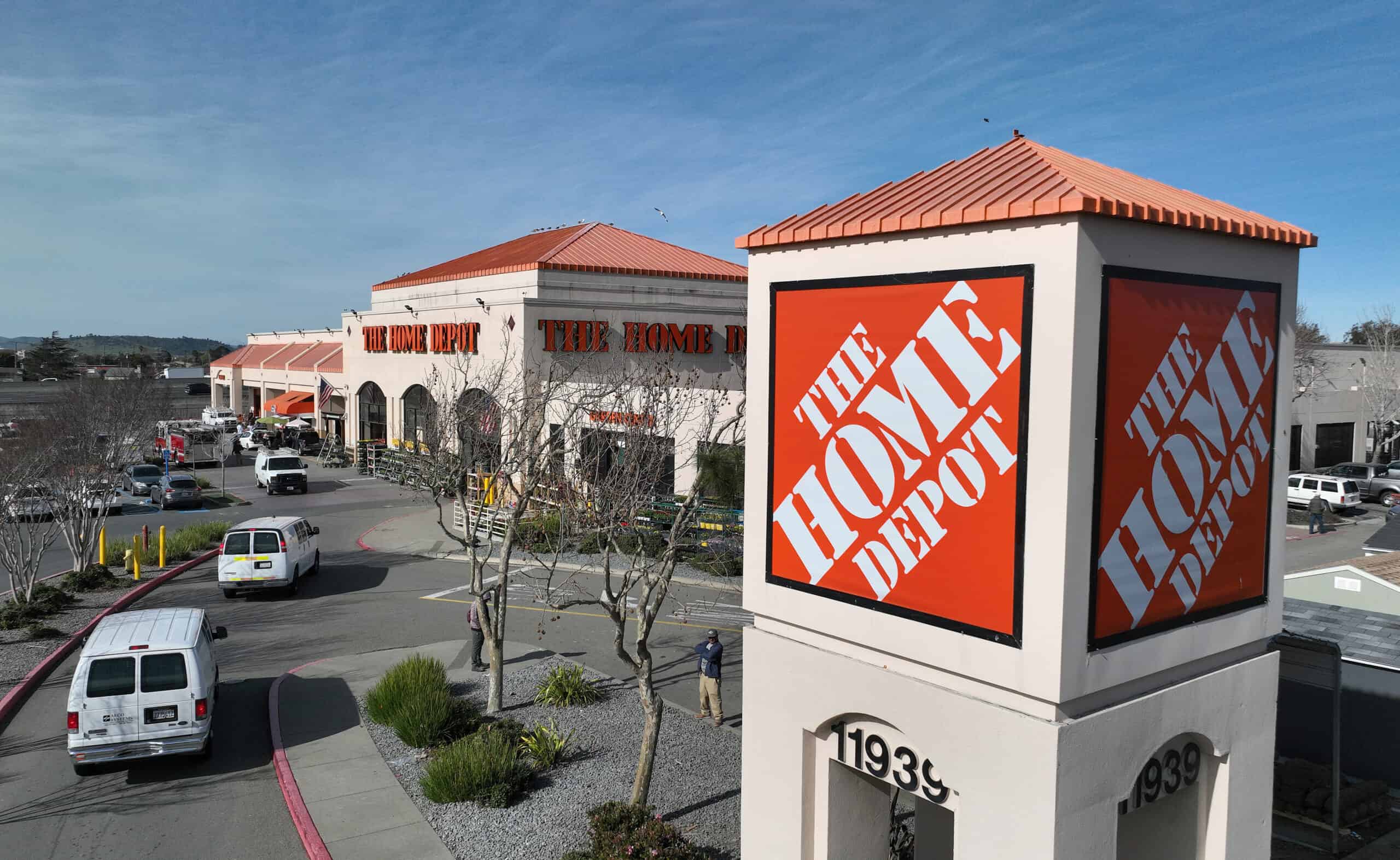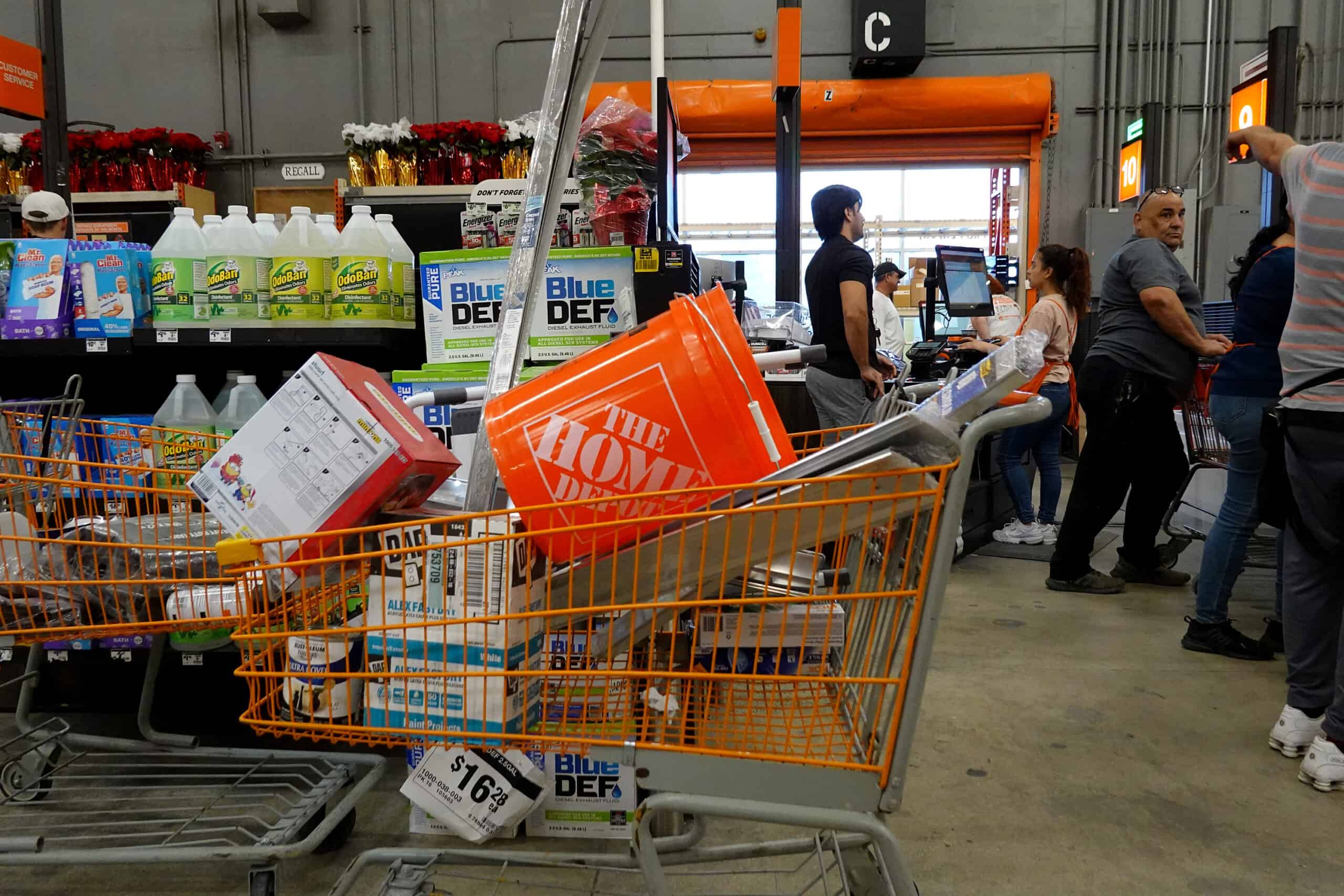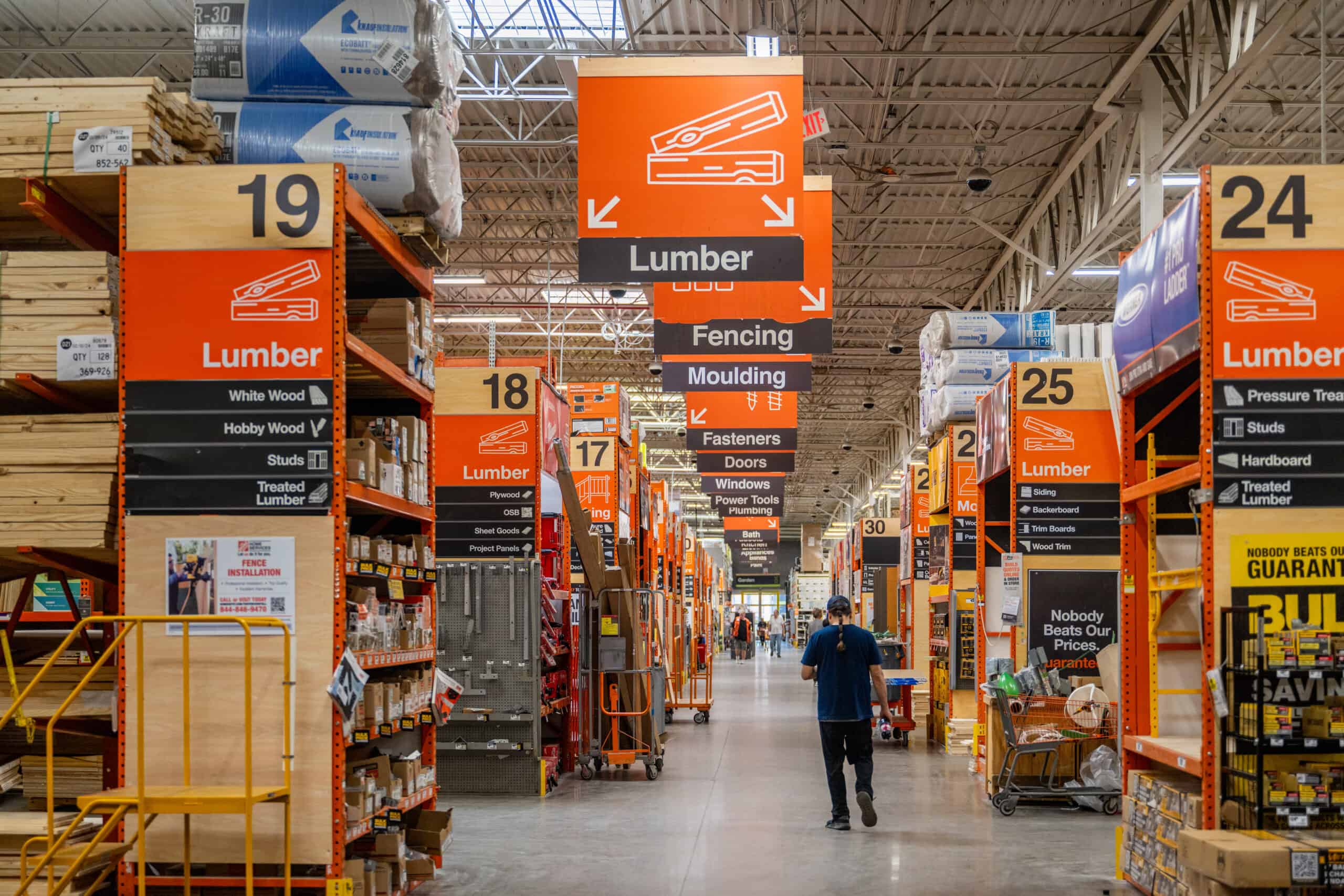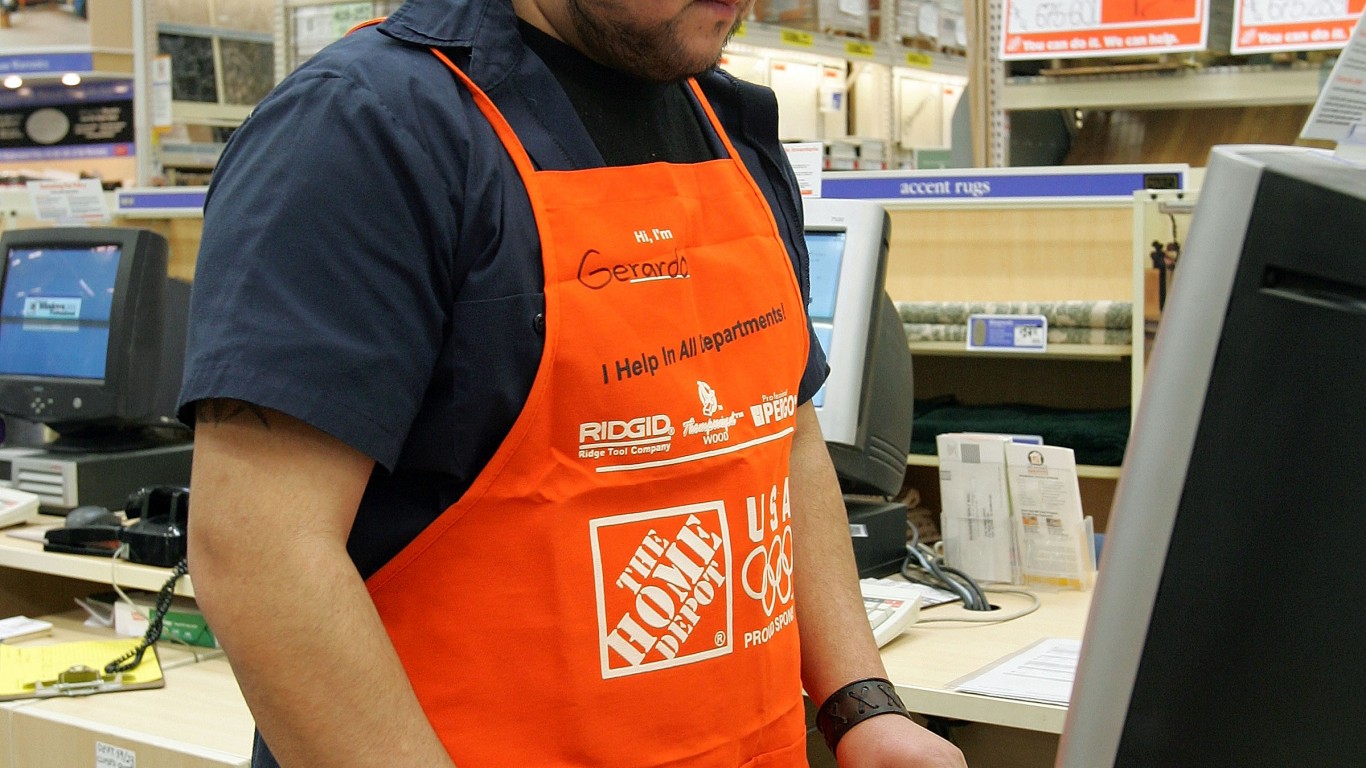
Nobody knows what the stock market will do in the future. There are no guaranteed strategies to make money on the stock market or to know which stocks to avoid, when to buy, how long to hold, and so on. So, what can you do?
Beyond basic investing rules (don’t invest more than you can afford to lose, and so on) you should learn to look for events or trends that tend to happen before a rise or drop in price. Things like company scandals, government investigations, slowing market growth, leadership change, and other events will tend to drop a stock price, while fast company growth, new product announcements, and positive news stories will tend to cause prices to rise. Keep an eye out for these events for a handful of companies and you can get pretty good at predicting price changes with some confidence.
Once you get going, it’s easy to get caught in your own head regarding hot stocks and missed opportunities. That’s why we investigated Home Depot (NYSE:HD) stock and found four primary reasons you should avoid buying it.
#1 Industry Experts Have Downgraded Home Depot

There is never any consensus about whether any stock is going to go up or down, and as a result, a buy, sell, or hold recommendation. That being said, we tend to listen to industry experts who usually have more insight into the companies and industries we invest in. One such expert is Daniela Breithauer of HSBC’s Global Research division.
Daniella changed her recommendation from hold to reduce. This means she thinks that anyone who currently holds Home Depot stock should sell it.
Why the change in recommendation? Recently, Home Depot revealed its performance during the fourth quarter of 2023, and for 2023 as a whole. Needless to say, its performance was less than impressive and its forecast for 2024 predicted only 1% growth in overall sales and income. Rampant inflation (both natural and company-driven) has driven prices up, and they can only increase so much before consumers stop buying. This lack of consumer spending is not unique to home improvement, of course, as consumers appear to be growing tired of companies raising their prices relentlessly, but it is unlikely Home Depot will be spared the slowdown.
Other experts agree with this assessment and suggest that Home Depot is currently over-valued (hovering around $380/share as of the middle of March 2024) and will drop to match expert valuation.
The thing to remember about stock prices, of course, is that they react just as much to investor speculation as investors react to the price itself. If enough experts believe that a stock will drop, then it can drop because other investors believe it will. Savvy investors will catch this herd mentality ahead of time and sell accordingly.
Most other investment resources we looked into were lukewarm about Home Depot stock. Holding seems to be the general consensus while particularly brave investors recommend a buy. If you don’t already own Home Depot stock, this should be reason enough to wait to buy. A few of our favorite reporting sites downgraded Home Depot stock to “hold” from “buy”.
#2 A Weak Home Improvement Market

Home Depot offers a wide variety of products, but one of the largest sources of revenue is from home improvement professionals. If the home improvement industry shrinks or slows down, the value of Home Depot should drop as well.
In fact, according to Home Depot, over half of its annual revenue comes from professionals and contractors, even though they make up only 10% of its customer base.
With skyrocketing home prices and outrageous price gouging on regular home goods like food, home improvement projects and demand have dropped, and Home Depot saw this reflected in their sales last year.
In its 2023 results, Home Depot reported that total sales had fallen by 3%, sales of comparable items had fallen by 3.2%, and total comparable sales in the United States had fallen by 3.5%. This drop was most drastic in the fourth quarter, where sales dropped 2.9% from 2022, comparable sales had dropped by 3.5%, and total comparable sales in the United States dropped by 4.0%. This signals a growing downward trend heading into 2024. And with housing and home improvement trends unchanged, it looks like this drop will continue.
Overall traffic in Home Depot locations also dropped by 2.7%, meaning fewer people are going to Home Depot, and are spending less.
Because of incredibly high interest rates, customers are also reluctant to purchase big-ticket items that require financing. This includes purchases like flooring, large appliances, cabinets, countertops, and other large items. Until interest rates drop, this trend is likely to continue as consumers have less discretionary income than before and can’t afford the high interest rate payments.
Unsurprisingly, Lowe’s (NYSE:LOW), a Home Depot competitor, reported similar numbers earlier this year, showing that this trend is not unique to Home Depot, but a larger, consumer-driven drop in demand for home furnishing, home improvement, and other items.
All this has led industry experts and stock watchers to be cautious when recommending buying Home Depot stock or to sell it altogether. With talk of a recession becoming more commonplace, it is unlikely that Home Depot can weather any further industry slowing without significant stock price drops.
#3 Strong Negative Press

The stock market, for better or worse, reacts strongly to public opinion. In recent days, several stories have made headlines that might drive Home Depot stock down.
First, a United States District Court judge ruled that Home Depot can be sued for intentionally inflicting emotional distress on one of its shoppers. Home Depot tried to get out of the suit, but it will move forward instead.
Allegedly, a Home Depot shopper was falsely accused of stealing by an employee who used a racial slur while confronting the shopper. How much the lawsuit will cost the company, how badly it will impact the brand, or what other issues the lawsuit might bring to light remain to be seen, but it is unlikely that it will help raise Home Depot prices.
Second, former President Trump recently announced that he had “never been a fan” of Ken Langone, one of the primary financiers of The Home Depot when it was founded. Trump is notorious for mobilizing his base against his political and business rivals. While Ken Langone is not involved with Home Depot business, it is entirely possible that angry and misguided supporters of the former president might boycott the company in a show of solidarity.
#4 Major Sales of Home Depot Shares

Our final reason might be the strongest so far: several large companies and prominent individuals have sold massive amounts of Home Depot stock in the past few months.
Park National Corporation sold 21.5% of its Home Depot sock in the fourth quarter of 2023. That equals 9,724 shares sold.
Executive Vice President Timothy A. Hourigan sold 8,996 of his Home Depot shares in February of this year. The price of stock at the time of sale was $368.74 per share, meaning that Hourigan might have thought it was overvalued at the time of sale.
Chief Executive Officer Edward, P. Decker also sold Home Depot stock. He sold 35,987 shares in February for $13,265,887.81.
While their reasons for lessening their holdings or offloading stock might vary between companies, the end result is the same: they sold shares, which drives the price down. If you already own Home Depot stock, you can find valid reasons to hold onto it, especially since many experts recommend doing just that. On the other hand, if you are looking for a good stock to invest in, Home Depot might not be the best choice until the stock price falls.
It’s Your Money, Your Future—Own It (sponsor)
Are you ahead, or behind on retirement? For families with more than $500,000 saved for retirement, finding a financial advisor who puts your interest first can be the difference, and today it’s easier than ever. SmartAsset’s free tool matches you with up to three fiduciary financial advisors who serve your area in minutes. Each advisor has been carefully vetted and must act in your best interests. Start your search now.
If you’ve saved and built a substantial nest egg for you and your family, don’t delay; get started right here and help your retirement dreams become a retirement reality.
Thank you for reading! Have some feedback for us?
Contact the 24/7 Wall St. editorial team.





